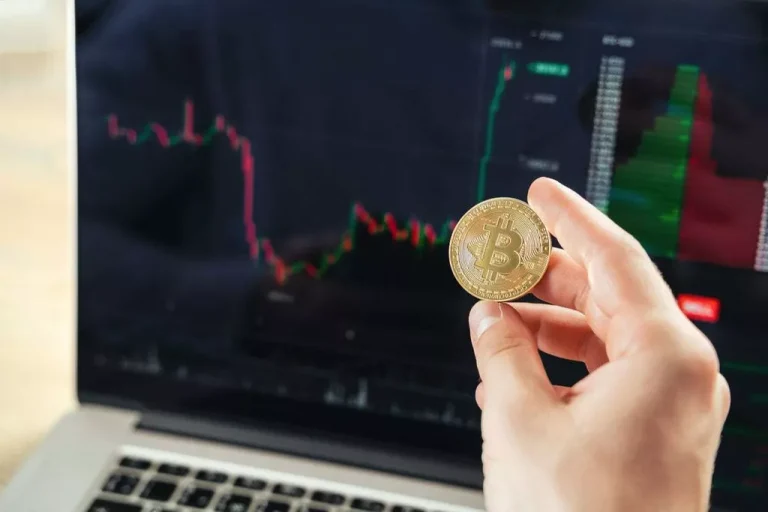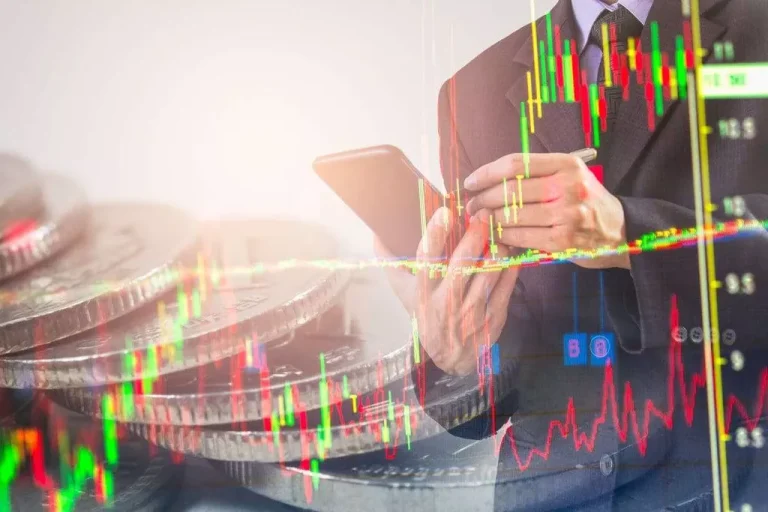This involves utilizing computer packages to analyze market knowledge and execute trades routinely. By executing giant trades, they’ll move markets and affect costs, which may be both optimistic – by offering liquidity – or adverse – by creating volatility. Profitable traders have adapted by investing in expertise themselves or by specializing in longer-term strategies which may be less affected by short-term fluctuations. High-frequency trading algorithms can execute trades quicker than human merchants ever could, which has led to increased competitors and lower income for some establishments.
- Their strategies and buying and selling instruments are more refined than these of retail buyers.
- We are not oracles, and we are fairly sure there are traders out there who can improve the strategy.
- The regulatory framework governing institutional buying and selling aims at guaranteeing transparency, equity, and investor safety.
- When institutional buyers buy or sell, they accomplish that with methods that affect investing tendencies.
- They are capable of fund and manage their portfolio in such a method that they can make income persistently.
With the deep-rooted information within the mentioned subjects, advanced data of quantitative calculations is sure to be there which makes for a profitable institutional dealer. Using different factors, investors can generate larger returns, reduce risks and improve the diversification of the portfolio. Institutional merchants negotiate foundation level charges for each transaction and require the best worth and execution.
Retail traders often commerce in smaller quantities and will not have access to the identical sources as institutional traders. Institutional traders are additionally subject to stricter regulatory frameworks in comparability with retail traders as a end result of their potential impact on market stability. This is in stark contrast to retail traders who account for a a lot smaller proportion of every day trading volume. In distinction, retail traders usually commerce smaller volumes and have limited resources for analysis and evaluation. As an investor, you could have the ability to invest in quite lots of asset classes, including monetary devices corresponding to securities and overseas change. A profession path in institutional trading demands complementary professional skills which establishments must purchase.
This will assist identify the necessary thing features and functionalities wanted https://www.xcritical.com/ to help their buying and selling activities. Subsequent, they should analysis and consider completely different platform providers, contemplating security, scalability, and integration capabilities. Once a suitable platform is chosen, establishments should develop a comprehensive implementation plan, including user coaching, knowledge migration, and ongoing platform upkeep and help. The complicated algorithms and complicated applied sciences that energy institutional trading platforms are at their heart. These platforms use cutting-edge algorithms to investigate market data, establish buying and selling opportunities, and execute transactions at lightning-fast speeds.

High-frequency Trading Technique And Statistics – Hft Backtest
The monetary markets operate on institutional trading which facilitates large transactions of stocks and forex together with bonds. Market trends emerge from high-value trades applied by hedge funds, pension funds, mutual funds, and investment Prime Brokerage banks, which concurrently affect inventory prices and market liquidity ranges. Institutional buying and selling is the main driver of monetary markets around the world. Largely accomplished by professional merchants who work for giant establishments, institutional buying and selling is the act of purchasing for and selling securities on behalf of huge hedge funds and monetary institutions to make profits. Assume of them as investment powerhouses like banks and pension funds. However they don’t simply buy and sell shares and other monetary instruments; they analyze trends and geopolitical events, make calculated strikes, and trade in massive volumes that can affect prices.

As a retail trader, you want to look for their nice footprints — gradual but sustained quantity increase over a few weeks. Institutional traders usually trade a big quantity, which may tremendously impact the share value of a safety. As a end result, they sometimes might break up trades amongst numerous brokers or over time to have the ability to not make a material impression. HowToTrade.com takes no responsibility for loss incurred as a results of the content material offered inside our Buying And Selling Academy. By signing up as a member you acknowledge that we aren’t offering monetary advice and that you’re making the choice on the trades you place in the markets. We don’t have any data of the level of cash you’re buying and selling with or the level of threat you take with each commerce.
They often have devoted groups of analysts and traders to repeatedly assess and adapt their risk administration methods. Being an institution dealer in one of many largest monetary banks and funding corporations can give you an enormous benefit available within the market. And generally, it’s not so unhealthy, as evident from the GameStop quick squeeze story in 2021.

Institutional Buying And Selling Strategies For Achievement
These subtle algorithms analyze market knowledge in real time, identify optimal entry and exit points, and automate trade execution, ensuring effectivity and minimizing human error. Mutual funds are managed by professional fund managers who make funding selections on behalf of the shareholders. By investing in a spread of securities, mutual funds provide diversification, which can help scale back threat compared to proudly owning a couple of individual stocks or bonds. Their trading methods are advanced, and so they often commerce on by-product markets such as CFDs, futures, options, and so on. They attempt to optimize their clients’ portfolios in bearish and bullish market trends. Recognizing institutional trading within the markets can give traders and merchants useful insights.
These examples illustrate the size and scope of institutional buying and selling actions, demonstrating how these large-scale operations can influence market developments, asset prices, and total market liquidity. An institutional trading platform is made for large traders like investment companies and hedge funds. Institutional merchants work for big groups like hedge funds and investment banks. They follow strict rules and may get higher offers due to the money they handle. On the opposite hand, retail merchants trade for themselves, usually paying more and facing limits on what they can purchase or sell. Moreover, by dealing with huge volumes and particular contracts, institutional traders have access to raised prices in the market and may even immediately affect the value movement of the assets they commerce.
What Are The Several Varieties Of Institutional Traders And Their Roles In Financial Markets?
Moreover, their actions can instantly influence the worth motion of property. Institutional traders usually capitalize on preliminary public choices (IPOs) and penny shares with strong growth potential. These can be profitable alternatives for retail merchants to determine undervalued companies poised for fast expansion.
Get to know where the market bulls are investing to identify the right stocks. Institutional trading is when an organization or group trades and invests cash on behalf of other individuals. Institutional buying and selling examples range from large-scale stock purchases to main foreign money market operations and important fixed-income investments. Trading financial merchandise on margin carries a excessive diploma of danger and is not appropriate for all buyers. Please make sure you absolutely perceive the risks and take appropriate care to manage your risk.
Institutional traders concentrate on opportunities for long-term development that match their objectives and danger tolerance. Giant buyers like pension funds and sovereign wealth funds invest over lengthy periods. They more and more use economic worth added and R&D efficiency metrics to evaluate long-term efficiency potential.
Institutional trading refers to the shopping for and promoting of securities by massive organizations similar to mutual funds, pension funds, insurance coverage companies, and banks. Institutional trading forms the backbone of the worldwide financial markets, moving vast sums of money and influencing market dynamics. This article explores institutional buying and selling, shedding mild on its participants, operations, and impression in comparability with retail trading. There are also tech corporations that make buying and selling platforms for establishments. These firms work with banks and asset managers to satisfy the wants of big investors. In the fixed-income market, massive gamers like pension funds and insurance coverage companies are key.
These Days, with the huge amount of data out there on-line, you might get priceless recommendations on popular monetary boards. Nevertheless, you must be careful when you navigate round these boards. If you discover an fascinating remark or suggestion, do your analysis to back it up and make a sensible investment decision. Establishments commonly employ refined strategies, similar to quantitative buying and selling and algorithmic buying and selling. Their strategies typically involve in-depth market analysis and the use of superior instruments.
Examples of institutional buying and selling embrace algorithmic buying and selling, high-frequency buying and selling (HFT), and block trading. For example, if a big institution all of a sudden sells off a good portion of its holdings in a particular security, it could set off panic promoting among other traders and trigger costs to plummet. All these causes are why this guide is a must-read for any aspiring institutional dealer since it’ll give a lot of informative perception into the success of Jim Simons in following the strategies. Nonetheless if a person is driven about turning into an institutional trader and is prepared to face the challenges one can do wonders on this job position. The role of an Institutional dealer is a high demand job that needs niche skill units because such persons are concerned in investing and managing cash on others’ behalf.
